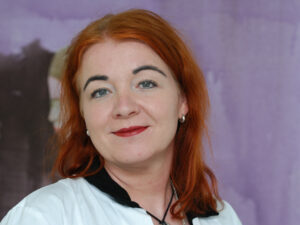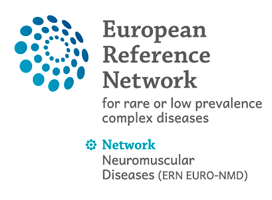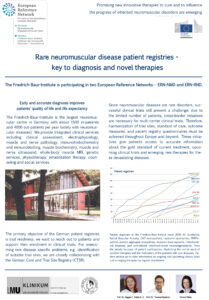30 Nov 2017
Rare neuromuscular disease patient registries – key to diagnosis and novel therapies

Authors:
Maggie Walter (maggie.walter@lrz.uni-muenchen.de), Simone Thiele, cand. med. (Friedrich-Baur Institute, Dept. of Neurology, Ludwig-Maximilians-University of Munich, Germany)
Sabine Krause, PhD, MD (Friedrich-Baur Institute, Dept. of Neurology, Ludwig-Maximilians-University of Munich, Germany)
Peter Reilich, MD, MA (Friedrich-Baur Institute, Dept. of Neurology, Ludwig-Maximilians-University of Munich, Germany)
Prof Thomas Klopstock, MD (Friedrich-Baur Institute, Dept. of Neurology, Ludwig-Maximilians-University of Munich, Germany)
Title
Improving diagnosis, treatment and care for all patients with neuromuscular diseases, and accelerating trial readiness through harmonized rare disease patient registries.
Abstract
Early and accurate diagnosis can improve patients’ quality of life and life expectancy. The Friedrich-Baur-Institute is the largest neuromuscular centre in Germany with about 1500 in-patients and 4000 out-patients per year (solely with neuromuscular diseases), providing integrated clinical services for including clinical assessment, electrophysiology, muscle and nerve pathology, immunohistochemistry and immunoblotting, muscle biochemistry, muscle and nerve ultrasound, whole-body muscle MRI, genetic services, physiotherapy, rehabilitation therapy, counselling and social services. The Friedrich-Baur-Institute is involved in two European Reference Networks – ERN-NMD and ERN-RND.
Within and beyond TREAT-NMD, we have established patient registries for Duchenne muscular dystrophy, Spinal Muscular Atrophy, FKRPopathies, Myotonic Dystrophies, Mitochondriopathies, Charcot-Marie-Tooth neuropathies, and Inclusion body myositis (www.treat-nmd.de). New therapeutic strategies for neuromuscular diseases like DMD, such as exon-skipping or stop-codon read-through, target specific genetic defects, and clinical trials are ongoing. When a clinical trial is being planned, it is very important that patients suitable for that trial can be found and contacted quickly to facilitate enrolment in the trial. The best way of ensuring this is to collect relevant data about patients in a single registry containing the information that researchers will need, including each patient’s particular genetic defect and other key information about their disease. It is therefore of high importance to harmonize trial infrastructures, standards of care, outcome measures, and patient registries internationally, to give patients access not only to information or clincial trials, but to upcoming treatments for these devastating diseases. We are contributing to the German CTSR (Care and Trial Site Registry) to allow overcoming one of the major problems in clinical trials: the identification of trial sites capable of recruiting enough patients and offering a specific standard of care and experience.


